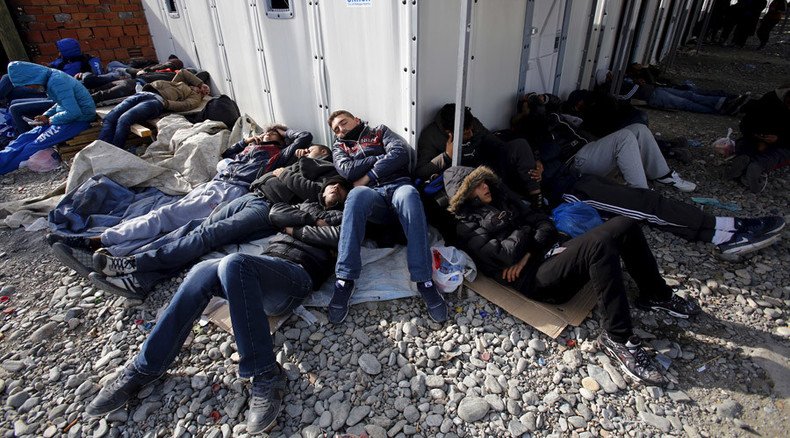Afghan refugees buy forged Taliban threat letters to get asylum - report

Refugees hoping to get asylum in one of European countries, need to prove that their lives are in danger at their home countries. For Afghans buying a forged letter from Taliban threatening their lives is a popular option to make their case, an AP report reveals.
Victims of the 14-year war in Afghanistan are using forged Taliban letters to improve their chances of gaining political asylum in Europe, AP reports. Afghans spend up to $1,000 for the letters, which claim their lives are threatened by the Taliban.
Using a Taliban logo copied from the internet, the handwritten letters claim the terrorist group’s military commission will be deciding on a death punishment for the recipient’s “crime” of working with US or Afghan forces.
Afghans seeking asylum buy fake Taliban threat letters, selling for up to $1000
https://t.co/4rAIZBKqTP (from @AP) pic.twitter.com/LGcX9sIm6w
— Samuel Horti (@Samuel_Horti) 22 ноября 2015“Of the threat letters now being presented to European authorities by Afghans, I'd say only one percent are real and 99 percent are phony,” a forger named Mukhamil told the Associated Press.

While such letters were once a tool of the Taliban, they now claim that they have ceased writing them and that any such documents in circulation are fake.
“We don't send threat letters, that's not our style,” Taliban spokesman Zabiullah Mujahid said.

Afghanistan's intelligence agency, the National Directorate of Security, is aware people are buying these threat letters, but choose not to pursue the forgers.
A spokesperson for Germany's Federal Office for Migration and Refugees said they also know that such documents are in circulation, but added that they don’t guarantee someone asylum.
“While they [the letters] can be drawn on as evidence of a threat by the Taliban, the applicant's entire account has to be coherent, comprehensible and credible,” spokeswoman Susanne Eikemeier told the agency.
Rejecting asylum seekers in the West can have various consequences. Many are left in a legal limbo whereby they can appeal the decision but in the meantime they cannot work – while others are stuck in camps in places like Calais waiting for their fate to be decided.
While some governments have specific repatriation agreements with other countries, others ask the failed asylum seekers to make their own way back to their country of origin. For those that don't do so voluntarily, force can be used to remove them.
Special charter flights have been organized to return people to their home countries and the Bureau of Investigative Journalism has found that some people have been handcuffed and put on a plane, including teenagers. According to the BBC, in the UK alone, the Home Office paid for 800 such flights since 2001.












